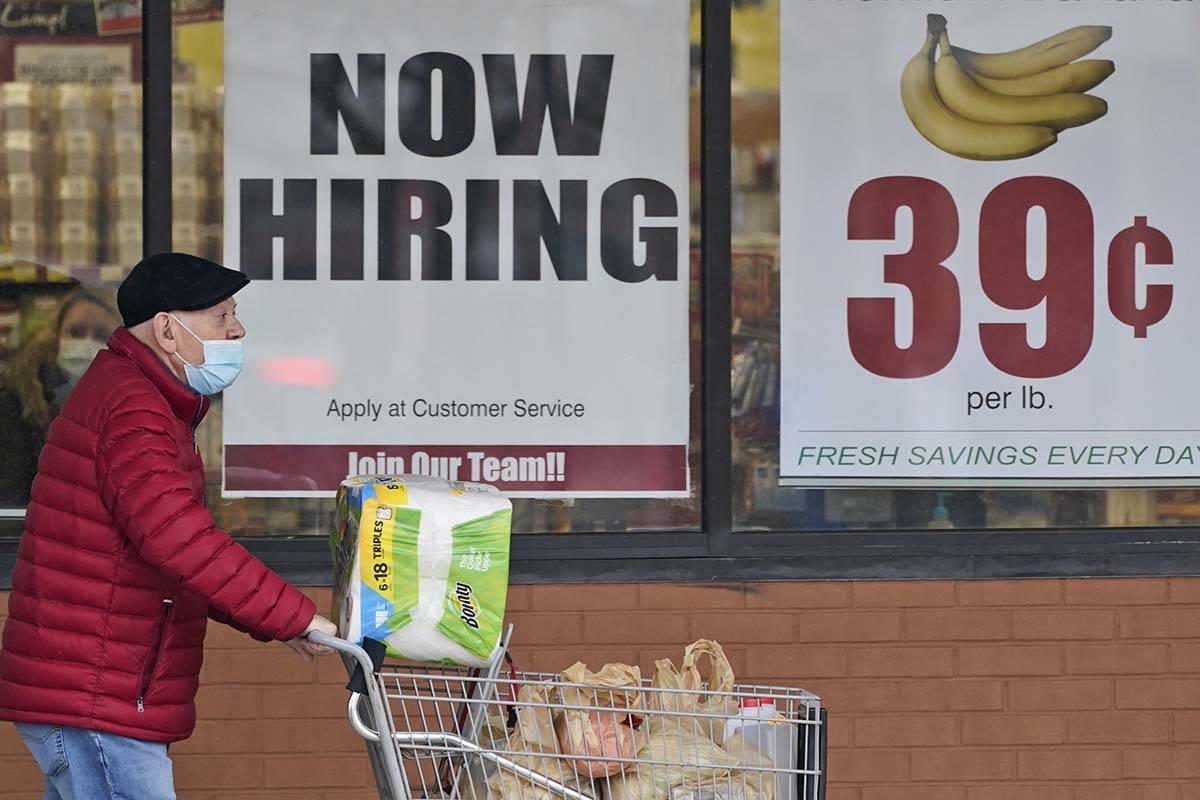RUBEN NAVARRETTE JR: It’s a worker’s market
The most delicate relationship in the universe of human interactions is the one between employers and workers.
And, in the United States, as millions of Americans gingerly emerge from the year of the pandemic, that relationship is in shambles. There was a bargain. It’s been broken. And it wasn’t the employees who broke it.
“No one wants to work anymore.”
That’s the claim on printouts taped to drive-thru menus in states such as New Mexico and Texas. Shorthanded managers of fast-food restaurants are pleading with customers to be patient with “the staff that did show up.”
All sorts of employers are having a difficult time finding workers. “Help Wanted” signs are everywhere.
The most recent jobs report from the U.S. Bureau of Labor Statistics was dreadful. Only about 266,000 jobs were created in April, a far cry from the million jobs that some economists predicted. As America comes out of the pandemic, the nation’s unemployment rate is a sluggish 6.1 percent.
A McDonald’s restaurant in Florida is offering potential employees $50 to show up for an interview. Another McDonald’s, in Pennsylvania, is offering a $500 signing bonus to anyone who accepts a job.
Some insist that three stimulus payments, and an extra $300 a week in federal unemployment benefits (on top of whatever individual states are awarding), turned a government safety net into a hammock.
That’s how Senate Minority Leader Mitch McConnell sees it. He thinks the boost that Uncle Sam gave to unemployment benefits during the pandemic is disincentivizing Americans from going back to work. That is especially so, the argument goes, for those laborers who are low-paid — say $15 per hour or less. Those who earn the federal minimum wage of $7.25 an hour could make more than their salary by staying home and drawing unemployment.
It’s easy to say that employers should pay higher wages, but customers haven’t shown a corresponding willingness to pay higher prices.
The nerve of McConnell. Apparently, the only government free money the 79-year-old smiles upon is the congressional pension check that will one day land in his mailbox under the Federal Employees Retirement System (FERS). Those who serve in Congress for at least 32 years can rake in more than $150,000 annually in retirement. The Kentuckian has been in the Senate for 36 years, or almost half the time he’s been on the planet. So he’ll make out like a bandit. Appropriately so for a politician.
Still, a lot of elected officials are simpleminded. And so it’s not surprising that they often can’t wait to oversimplify a complicated reality — especially in ways that advance their policies or serve their agenda.
And now that hundreds of thousands of jobs are going unfilled in the United States, it’s not hard to find hiring managers and business owners — both conservatives and liberals — who say that Americans are lazy and just don’t want to work anymore.
The reality is more complex. Many of those Americans who may be reluctant to return to work may be afraid to contract COVID-19 or lack child care or want to earn more or prefer to continue to work from home.
Then there is the fractured relationship. I suspect that many workers don’t like employers as much as they once did.
These things go in cycles. Right now, it’s a worker’s market. Job applicants and existing employees have the leverage. But it wasn’t that long ago that the tables were turned, and it was an employer’s market.
I was laid off from my last full-time newspaper job in 2010, after escaping three other earlier rounds of layoffs. The year before I left, my colleagues and I were told that — because of corporate belt-tightening — we were getting docked 20 percent of our pay and giving up one week’s vacation. The company just tore up our existing deals and told us to take it or leave it. The job market was bleak at the time — especially for newspapers. So I took it.
A year later, I was let go along with dozens of other journalists.
During the pandemic, many employers acted terribly. They put workers at risk of contracting COVID-19, and then laid them off when business dropped — leaving millions without salary or health care. When workers lost their homes, many employers seemed to say: “It’s not my problem.”
Now the tables have turned again. What went around is coming around. Employers are hurting, and they can’t find workers. And you can imagine what many workers are saying: “It’s not my problem.”
That’s not laziness. That’s karma.
Ruben Navarrette’s email address is ruben@rubennavarrette.com. His podcast, “Ruben in the Center,” is available through every podcast app.






















